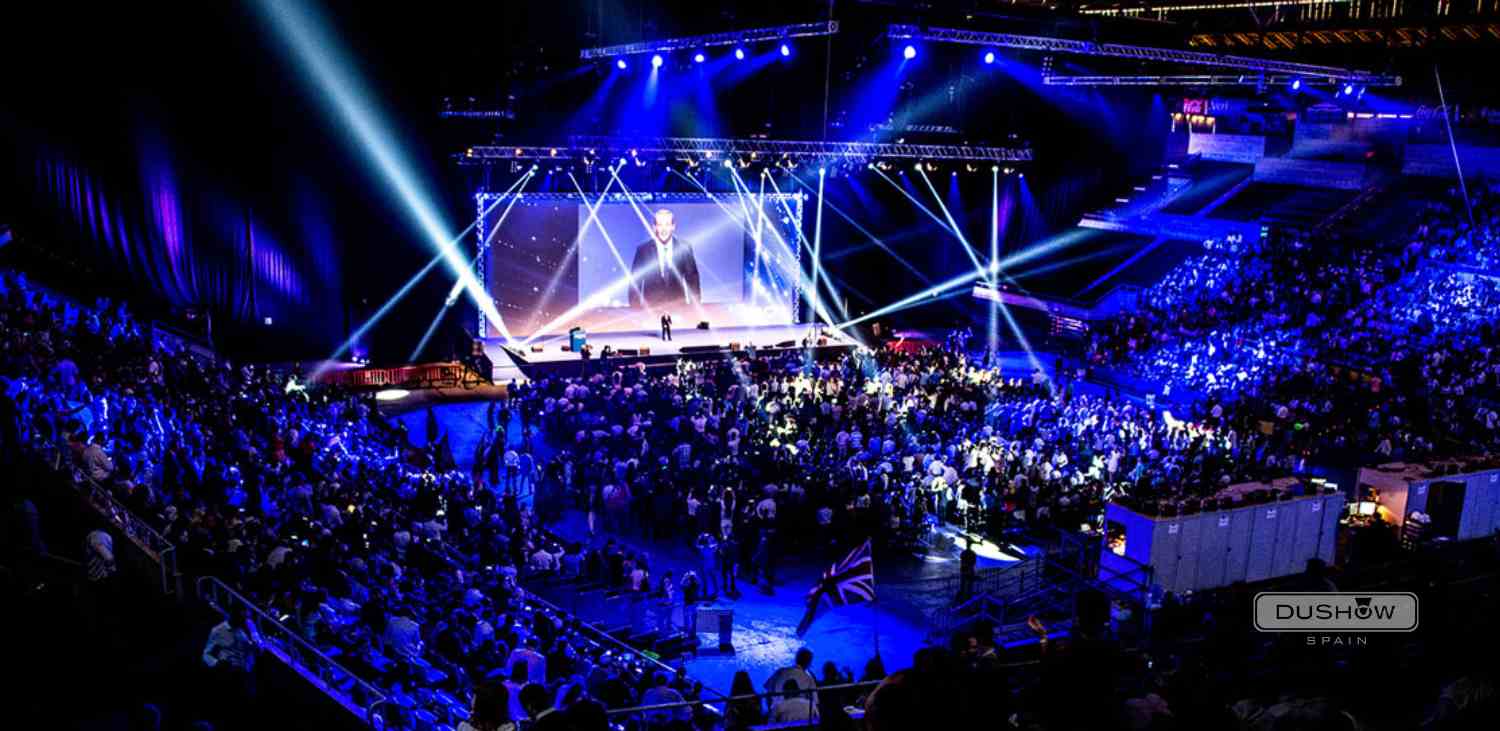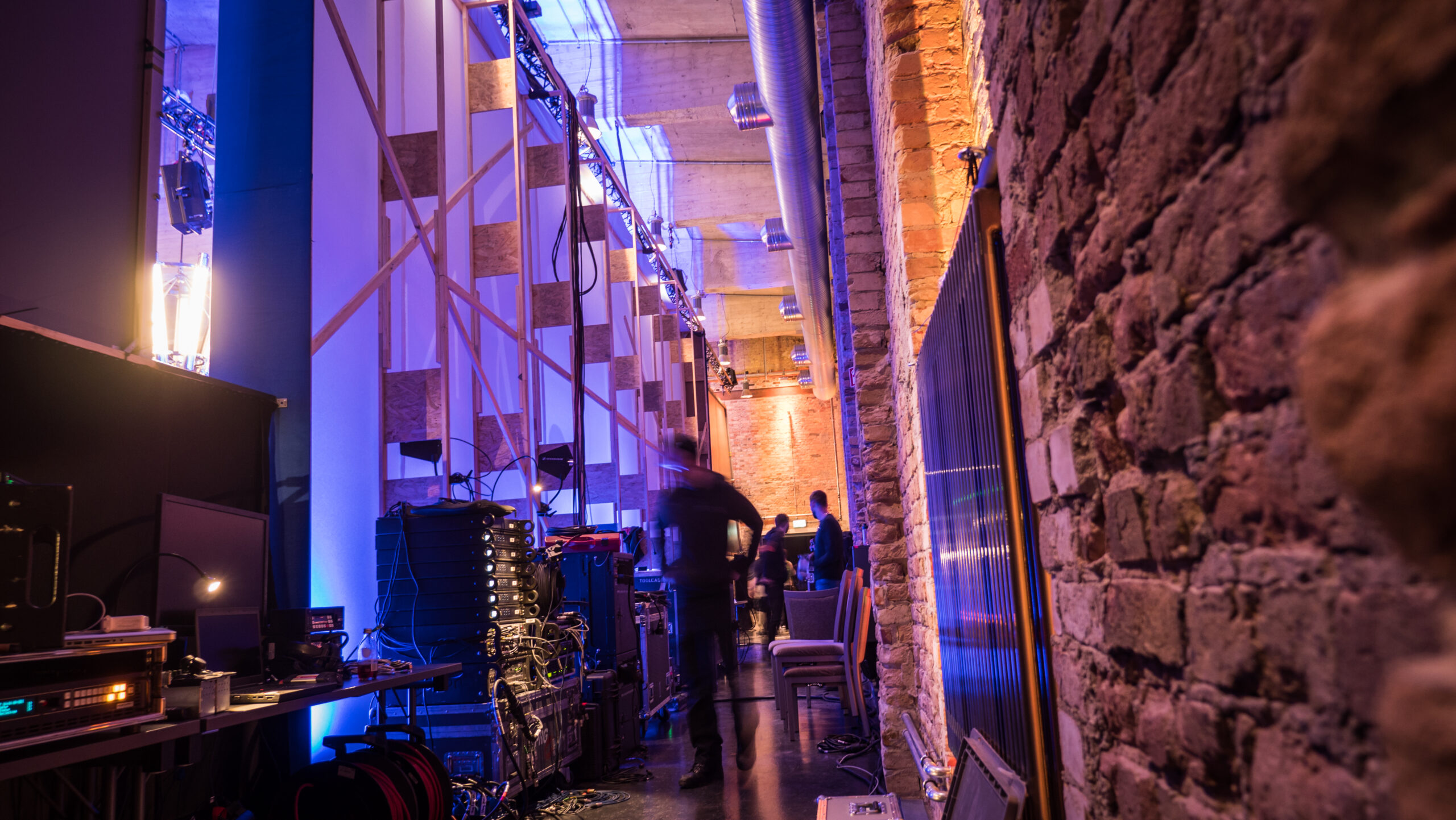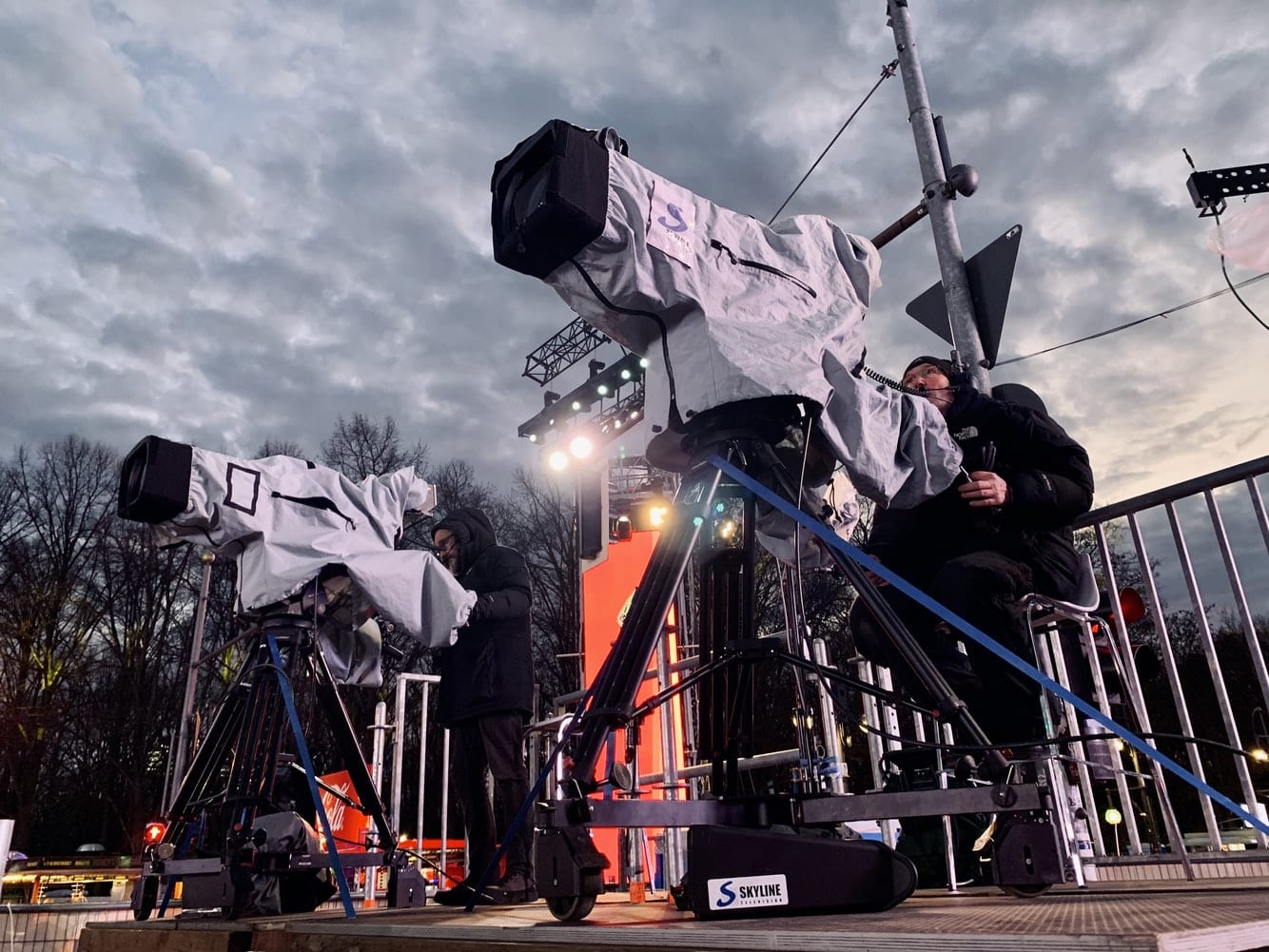Recognizing Event Production: Why It Is Very Important for Effective Events
Event production plays an important role in shaping successful events. It includes mindful planning, sychronisation, and execution to assure every detail aligns with the event's vision. This process not just enhances guest experiences yet also facilitates purposeful connections among individuals. Understanding the complexities of event production can greatly impact the total result. What are the essential components that add to a successful event, and exactly how can they be efficiently managed?
The Function of Event Production in Developing Memorable Experiences
Lots of elements add to the success of an event, event production plays a critical role in crafting memorable experiences. This diverse process incorporates different components, including planning, logistics, and execution. Efficient event production guarantees that every detail lines up with the general vision, producing a smooth circulation that astounds participants. By coordinating timelines, taking care of sources, and looking after technical elements, event producers establish a foundation for impactful experiences.Moreover, they curate environments that reverberate with the target audience, improving involvement and emotional link. From choosing suitable venues to incorporating ingenious innovation, the choices made throughout production significantly affect exactly how participants regard and keep in mind the event. By prioritizing top quality and focus to information, event production transforms common gatherings into amazing minutes, leaving lasting impressions. Eventually, the competent orchestration of these parts defines the significance of an occasion, showcasing the importance of specialist event production in attaining outstanding results.
Key Elements of Successful Event Production
Effective event production rests on a number of essential components that guarantee success. Preparation and control establish a solid structure, while technical arrangement demands address logistical requirements. Furthermore, carrying out audience engagement approaches improves the total experience, making the event memorable.
Planning and Sychronisation
Preparation and control function as the backbone of effective event production, guaranteeing that every detail lines up seamlessly to create an unforgettable experience. Reliable preparation involves developing a clear vision and goals, while sychronisation entails the meticulous company of logistics, schedules, and sources. A distinct timeline is crucial, directing all stakeholders with essential turning points and jobs. Interaction plays a pivotal role, promoting collaboration amongst staff member, vendors, and venue personnel. Routine conferences and updates aid to address obstacles immediately, making certain that every person stays straightened with the event goals. Inevitably, an organized approach to planning and coordination not only improves efficiency but likewise greatly adds to the general success and enjoyment of the event for guests and organizers alike.
Technical Arrangement Requirements
A successful event counts greatly on its technological arrangement needs, which incorporate crucial elements such as audio-visual devices, illumination, staging, and connectivity. Audio-visual tools consists of microphones, speakers, and projectors, making certain that presentations and performances are delivered plainly. Appropriate lights enhances the ambiance and highlights vital areas, while presenting supplies the necessary platform for audio speakers and performers. Connectivity, including Wi-Fi and electrical access, is essential for smooth interaction and technology assimilation. Each component has to be meticulously prepared and carried out, customized to the event's specific requirements. Poor technological configurations can result in interruptions, adversely affecting the total experience for guests, underscoring the importance of detailed preparation and focus to detail in event production.
Audience Involvement Techniques

The Relevance of Planning and Sychronisation
Planning and control are important to the success of any kind of event production. Reliable timeline management, source allowance techniques, and group interaction dynamics play essential functions in guaranteeing that all components come with each other flawlessly. Without a structured approach to these elements, events take the chance of dealing with delays, budget overruns, and miscommunication amongst group members.
Effective Timeline Administration


While successful event production often rests on creativity and implementation, efficient timeline management remains a crucial element that can not be overlooked. A well-structured timeline functions as the foundation of any event, making sure that each stage is carried out in a timely manner. It enables the control of different tasks, from place arrangement to visitor arrivals, while protecting against prospective traffic jams. By clearly outlining due dates and duties, event organizers can keep emphasis and adapt to unforeseen obstacles. In addition, a meticulously crafted timeline cultivates interaction amongst staff member, promoting liability and cooperation. Inevitably, efficient timeline administration not just boosts functional effectiveness however likewise contributes substantially to the overall success and smooth implementation of the event, leaving attendees with a memorable experience.
Source Allowance Techniques
Effective resource allocation methods are critical for the successful implementation of any event. Correct planning enables event organizers to identify and distribute sources, such as financial resources, personnel, and products, in a fashion that takes full advantage of effectiveness. By evaluating the details needs of each aspect of the event, organizers can focus on jobs and allot sources as necessary. Sychronisation amongst various departments ensures that all aspects, from accommodating audiovisual demands, are properly sustained. This calculated approach not only reduces waste however likewise boosts the general experience for guests. Additionally, expecting prospective difficulties and having contingency strategies in area enables smoother procedures. Ultimately, reliable resource appropriation contributes substantially to accomplishing event objectives and assuring an unforgettable event.
Team Interaction Dynamics
Exactly how can smooth communication amongst staff member change the event production procedure? Efficient communication is crucial for coordinating jobs, sharing updates, and dealing with difficulties use this link in real-time. When team members take part in open discussion, they can rapidly identify potential problems and develop services collaboratively, decreasing delays and misunderstandings. This dynamic fosters a natural setting where everybody comprehends their functions and obligations, bring about a more synchronized initiative. Furthermore, routine check-ins and comments loopholes improve liability and warranty positioning with the event's objectives. By focusing on interaction techniques, teams can enhance operations, boost spirits, and inevitably boost the general top quality of the event. Effective gatherings rest on the ability to communicate successfully, making it an essential part of event production.
Enhancing Participant Interaction Via Imaginative Style
Imaginative design plays an essential duty in boosting participant involvement at events, as it fosters an immersive setting that astounds participants' attention. By incorporating innovative visuals, interactive elements, and thematic decor, event organizers can create remarkable experiences that resonate with participants. Thoughtful design designs advertise activity and exploration, motivating visitors to engage with screens and each other.Incorporating innovation, such as increased truth or live ballot, more improves the experience, permitting real-time responses and communication. Additionally, sensory components like lighting, sound, and aroma can evoke emotions and create an extra appealing atmosphere.The usage of narration with layout assists communicate the event's function and message, making it a lot more relatable for participants. Inevitably, imaginative design not just boosts engagement however likewise grows links amongst individuals, leaving an enduring perception that prolongs beyond the event itself. This calculated strategy to design is necessary for successful events.
Taking care of Logistics for a Smooth Execution
While the exhilaration of an event can draw participants in, handling logistics is crucial to secure a seamless execution. This includes meticulously working with various components, from location selection and layout to catering and transportation. Reliable logistics management assures that all components line up, allowing for a smooth flow from registration to the conclusion of the event.Additionally, a clear interaction plan among all stakeholders is important. This consists of staff, vendors, and volunteers, that have to be informed of their roles and responsibilities. Expecting potential obstacles, such as devices failure or unexpected weather, can even more enhance the event's success.Creating a detailed timeline helps maintain the team on course and allows for prompt adjustments. Eventually, well-managed logistics not only facilitate a satisfying experience for attendees yet likewise reflect the professionalism and trust and integrity of the organizers, adding to the general success of the event.

The Effect of Technology on Event Production
What duty does modern technology play in forming modern event production? Innovation has become a foundation of reliable event production, improving both preparing and implementation processes. From advanced registration systems to interactive applications, modern technology streamlines participant administration and enhances interaction. Online event platforms enable organizers to reach broader audiences, damaging geographical barriers and promoting hybrid gatherings that integrate in-person and online experiences.Additionally, audiovisual modern technologies, such as high-def displays and stereos, raise the quality of presentations and efficiencies, making certain a memorable experience resource for guests - event production charlotte. Social media site webpage integration allows real-time comments and communication, cultivating area engagement previously, throughout, and after the event. Information analytics devices help organizers in keeping an eye on participant habits and preferences, enabling tailored experiences that reverberate with diverse audiences. In general, the combination of innovation in event production not only enhances functional effectiveness but also enriches guest experiences, ultimately adding to the success of the event
Evaluating Success: Gauging the Outcomes of Your Event
Success in event production depends upon efficient evaluation, which entails gauging a range of end results to analyze the total influence of an event. To accomplish this, organizers can utilize both qualitative and quantitative metrics. Measurable measures may consist of presence numbers, ticket sales, and income produced, while qualitative evaluations could include participant contentment surveys and comments forms.Additionally, analyzing social networks engagement and media protection can offer insights right into the event's reach and brand name influence. Comparing these metrics against predefined objectives assists identify if the goals were met.Furthermore, post-event debriefs with the planning group can discover lessons discovered and areas for renovation. By systematically evaluating these outcomes, event producers can enhance future celebrations, making certain constant development and success. Eventually, a complete analysis not just highlights accomplishments yet likewise informs calculated decisions for subsequent events, promoting a culture of quality in event production.
Frequently Asked Inquiries
What Credentials Should an Occasion Producer Have?
Event producers need to possess solid organizational skills, creative thinking, and reliable communication capacities. A history in job monitoring, budgeting, and negotiation is essential. Pertinent certifications and experience in varied event types better improve their qualifications.
How Can I Lower Event Production Costs Properly?
To efficiently decrease event production prices, one can improve vendor choice, bargain contracts, utilize internal sources, focus on essential elements, execute modern technology for effectiveness, and explore sponsorship possibilities to counter costs without jeopardizing quality.
What Are the Typical Difficulties in Event Production?
Typical challenges in event production consist of spending plan constraints, logistical coordination, supplier monitoring, time restrictions, guest involvement, technological troubles, and unpredicted scenarios - event production charlotte. Each element can significantly impact the total success and smooth implementation of the event
Exactly how Do I Select the Right Venue for My Event?
Picking the appropriate venue entails taking into consideration variables such as area, capacity, services, and budget plan. In addition, evaluating access and setting guarantees the picked area aligns with the event's goals and boosts the total attendee experience.
What Is the Typical Timeline for Planning an Occasion?
The common timeline for planning an event varies, however typically consists of stages such as idea growth, location option, supplier control, promo, and last prep work, often covering a number of months to assure an effective implementation.